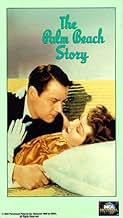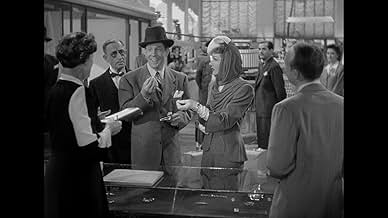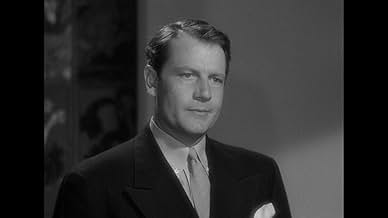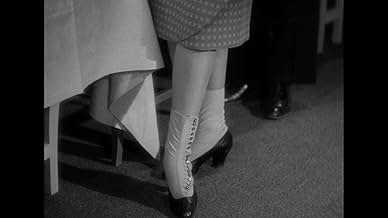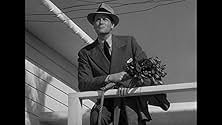Füge eine Handlung in deiner Sprache hinzuA New York inventor needs cash to develop his big idea, so his adoring wife decides to raise it by divorcing him and marrying an eccentric Florida millionaire with a capricious high-society ... Alles lesenA New York inventor needs cash to develop his big idea, so his adoring wife decides to raise it by divorcing him and marrying an eccentric Florida millionaire with a capricious high-society sister.A New York inventor needs cash to develop his big idea, so his adoring wife decides to raise it by divorcing him and marrying an eccentric Florida millionaire with a capricious high-society sister.
- Regie
- Drehbuch
- Hauptbesetzung
- Auszeichnungen
- 1 wins total
- Fourth Member Ale and Quail Club
- (as Rosco Ates)
Empfohlene Bewertungen
After a sensationally bizarre opening credits sequence, the movie settles down into a slightly less zingy version of "The Awful Truth." Claudette Colbert thinks her marriage to Joel McCrea isn't working, even though he doesn't think likewise. She thinks she's not a capable enough wife; he thinks he's a failure as a man and husband. She takes off for Palm Beach to get a divorce despite all of his attempts to stop her. On the train to Florida, she meets a wealthy tycoon who wants to marry her and give her everything she could possibly want, but she realizes that what she really wants is her husband.
This is all told with a lot of wit and flair. The early scenes with Colbert and McCrea drag, and an extended bit of nonsense on the train involving the Ale and Quail Hunting Club is superfluous and not very funny. But once everyone shows up in Palm Beach, the film becomes a delight, and a bonus is added in the person of Mary Astor, who plows on to the screen about half way through the film and decimates everyone in her path with her quick-tongued and hilarious performance as a rich society lady with a lot of time on her hands and her sights set on Colbert's husband.
What I liked about this film was that Colbert and McCrea don't seem to have a lot of chemistry in their early scenes together; he seems so stiff and bland, and you don't really blame her for wanting to get away. But after you've seen both of them with other people, they seem so much more right for each other when they get back together, and there's all this chemistry you didn't initially realize was there. I don't know if that's due to their performances, the writing, the directing, or whether it was just a happy accident, but it works beautifully.
Grade: A-
The opening of "Palm Beach Story" is a bizarre scene that only makes some sense (and I'm emphasizing some) at the very end of the film. It's certainly an original way to start a movie. There are some hilarious scenes in this film - desperate to get to Palm Beach for a quickie divorce, but with no money, Colbert accepts the invitation of the gentlemanly Ale and Quail Club to ride in their private train car as their guest and mascot. Unfortunately, the emphasis in this club is the ale and not the quail - shooting sugar cubes will do - also blowing out train windows, trashing whole train cars - you get the idea. Running from them, Colbert soon meets up with Rudy Vallee, who gives an absolutely delightful performance as a filthy rich man. He serenades her at one point, and it's great, hearkening back to his days as a crooner! Mary Astor is his many times married sister, and when Colbert's husband shows, in the form of Joel McCrea, Astor sees her next mark.
McCrea has a funny slapstick fall down a flight of stairs, but otherwise, doesn't have much to do except be angry and jealous of his wife. Colbert in her glorious clothes, Vallee, and a vivacious Astor upstage him a bit. A very funny film, produced during World War II to give America a much-needed laugh.
His script, full of hilarious one-liners that fly by almost too fast to catch, is acted to perfection by CLAUDETTE COLBERT, RUDY VALLEE and MARY ASTOR--with a less enthusiastic turn by JOEL McCREA who gives the only so-so performance, perhaps because none of the wittiest lines come his way. I've always liked this actor but here is performance is almost muted and strangely remote.
Nevertheless, if screwball comedy is your dish, this is one you can relish. From the moment Colbert gets aboard a train carrying her to Palm Beach, the fun starts and gets into high gear, racing toward a conclusion that is not altogether satisfying nor even remotely hinted at until the final few minutes of film. It's a twist that somehow doesn't ring true--the only really false note in an otherwise perfect screwball comedy.
Rudy Vallee is outstanding as a nutty millionaire, a role written expressly for him (and he even gets to sing a little)--and Mary Astor, as his husband hunting sister, is hilariously over the top as a woman who can't stop talking while pursuing her man.
A good way to spend a pleasant 90 minutes.
The subplot with the twins, glanced at in the beginning and end of the picture, is another conscious lampooning of conventional movies, here a lampooning of the structure of movies themselves, of their conventional beginnings and endings. It's not meant to be taken seriously; as McCrea's character casually says at the end, it's all stuff "for another movie."
No words can be found to adequately praise Claudette Colbert's performance. Joel McCrea is good too, as the prototypical wooden 1930s leading man. Rudy Vallee is absolutely hilarious as a "momma's boy" version of John D. Rockefeller, as is Mary Astor as his rich nymphomaniac sister. Her eunuch, Toto, played by Sig Arno, seems straight out of an Ernst Lubitch picture, perhaps a Sturges nod to the master. Quite a few scenes of the film, in their settings and atmosphere, pay homage to Lubitsch. Sturges does the "Lubitsch touch" proud, especially in those two scenes when Colbert sits on McCrea's lap so that he can undo the back of her dress, with the two of them both times melting into a kiss, and the scene ending with a fade out, leaving little doubt as to what will happen next. The second scene is particularly romantic, done as Rudy Vallee sings "Good Night Sweet Heart," itself a standard of the 1930s. Vallee also sings a line of "Isn't It Romantic," a song introduced in the luminous 1932 film "Love Me Tonight," directed by Rouben Mamoulian. The music in the film itself hearkens back to those great romantic comedies of the 1930s.
It's nice to see Sturges's stock company of actors popping up here as well. I noticed William Demarest say his name was "Bill Docker," the same name his character had in Preston Sturges's "Christmas in July."
In short, "The Palm Beach Story" is a wonderful film, whose richness can really be appreciated when seen in context, in the context of those old 1930s Paramount films, both the melodramatic ones like "Up Pops the Devil," that it lampoons, and the comedic, romantic ones like "Love Me Tonight" and "One Hour with You," that it pays homage to.
Wusstest du schon
- WissenswertesIn the long dolly shot of Joel McCrea and Mary Astor strolling on the pier from Rudy Vallee's yacht, Preston Sturges makes a rare Alfred Hitchcock-style appearance as the chubby, moustachioed leader of the crew toting Claudette Colbert's luggage.
- PatzerOn the train, the men with the shotguns shoot out the glass of the same window several times.
- Zitate
Wienie King: Cold are the hands of time that creep along relentlessly, destroying slowly but without pity that which yesterday was young. Alone our memories resist this disintegration and grow more lovely with the passing years. Heh! That's hard to say with false teeth!
- Crazy CreditsWhile the opening credits are running, a prequel story about the two leads' wedding is being shown that is only hinted at in the last few minutes of the movie and the words, "And they lived happily ever after...or did they?". The movie comes full circle at the end to another wedding with the the same phrase "And they lived happily ever after...or did they?"
- Alternative VersionenThere is an Italian edition of this film on DVD, distributed by DNA Srl: "RITROVARSI A PALM BEACH (1942) New Widescreen Edition + DONNE E VELENI (1948)" (2 Films on a single DVD, with "The Palm Beach Story" in double version 1.33:1 and 1.78:1), re-edited with the contribution of film historian Riccardo Cusin. This version is also available for streaming on some platforms.
- SoundtracksIsn't It Romantic?
(1932) (uncredited)
Lyrics by Lorenz Hart
Music by Richard Rodgers
Played by a dance orchestra during the ballroom sequence
Top-Auswahl
- How long is The Palm Beach Story?Powered by Alexa
Details
- Erscheinungsdatum
- Herkunftsland
- Offizielle Standorte
- Sprache
- Auch bekannt als
- The Palm Beach Story
- Drehorte
- Produktionsfirma
- Weitere beteiligte Unternehmen bei IMDbPro anzeigen
Box Office
- Bruttoertrag in den USA und Kanada
- 438.200 £
- Laufzeit
- 1 Std. 28 Min.(88 min)
- Farbe
- Seitenverhältnis
- 1.37 : 1


